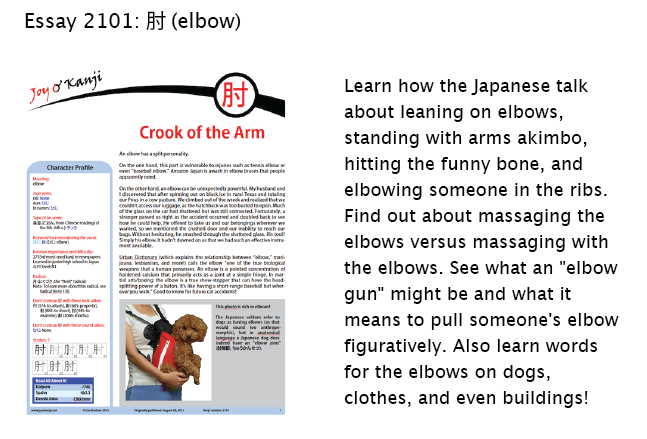Extreme Heat and Lots of Nudity
It's been sweltering here, the kind of heat that makes you regret having to wear clothes. Fortunately, the fog rolled in this afternoon, bringing relief but also confusion. The temperature dropped 11 degrees in an hour. If you're the type who does Celsius, you're on your own with the conversion because my brain melted long ago.
Speaking of doing things on your own, I learned (or relearned?) the word for that last weekend during a Skype chat with my Japanese language partner:
自力 (じりき: by oneself; self-made) self + power
I heard it when my partner made this comment:
大使館に空港からホテルまで連れて行ってほしかったのですが、自力でいかなければなりません。
I wanted the embassy to take me from the airport to the hotel, but I'll have to do it myself.
大使館 (たいしかん: embassy); 空港 (くうこう: airport); 連れて行く (つれていく: to take along)
The simplicity and logic of this keyword appeal to me greatly. I love hearing about "self" and "power" in one neat package, though my friend wasn't feeling so powerful when he complained about the lack of transportation provided for him. In fact, I detected a strong whiff of bitterness.
Speaking of whiffs, what do you think this term could mean:
物臭 (ものぐさ) thing + stinking of
a. trash
b. lazy person
c. restroom
d. overly religious person (stinking of incense)
I'll block the answer with a photo I took on a hot and moonlight night this week when I was supposed to be focusing intently on work but found myself gazing out the window.

Photo Credit: Eve Kushner
San Francisco as seen from Berkeley.
Okay, the answer is b. That is, 物臭 (ものぐさ: thing + stinking of) means "lazy person." Why?! Is the person too lazy to keep clean, and is he or she so inert as to seem like an object?
My proofreader's sources say only that people originally pronounced this word as ものくさ. He figures that this word must come from もの + (めんどう)くさい, wherein めんどうくさい (面倒臭い) means “troublesome.” Because a lazy person finds it troublesome to do anything, it follows that ものくさ would mean “lazy person.”
Speaking of laziness, and harking back to previous mentions of (1) heat, (2) the desire to dispense with clothing, and (3) a melted brain, I'm going to present some thematically relevant terms in a lazy way (i.e., all at once in the form of a matching quiz). See what you can do:
| 1. 手厚い (てあつい) hand + thick, deep | a. to rest one's chin in one's hand |
| 2. 頬杖を突く (ほおづえをつく) cheek + cane + to prick, stab |
b. nudity; frankness |
| 3. 素っ気ない (そっけない) naked + spirit | c. cordial, warm |
| 4. 赤裸々 (せきらら) red + naked | d. brusquely |
Here's another photo from the window two nights ago.

Photo Credit: Eve Kushner
Nearly full moon behind a redwood tree.
1.c. 手厚い (てあつい: hand + cordial) means "cordial, warm." Although 厚い primarily translates as "thick" or "deep," it can also mean "kind, cordial, hospitable, warm." I would understand 手厚い in a country where handshakes were traditional (making 手厚い the rough equivalent of "extending a warm hand"), but that has no bearing in Japan. Ah, it turns out that this 手 doesn't mean "hand." Daijisen and Daijirin call it a prefix to emphasize the adjective that immediately follows.
2.a. 頬杖を突く (ほおづえをつく: cheek + cane + to prop oneself up with) means "to rest one's chin in one's hand." Note that I've made the breakdown of 突く more accurate. An even better analysis would be resting one's chin in one's hand (1st 2 kanji) + to prop oneself up with. By the way, 杖 (cane used for walking) is non-Joyo. I love the idea that resting one's chin in one's hand involves a cane of sorts!
3.d. 素っ気ない (そっけない: naked + spirit) means "brusquely." The naked spirit! I like it! I suppose I shouldn't, though, because in this case "nude" and "rude" apparently go together.
4.b. 赤裸々 (せきらら: red + naked) means "(1) nakedness; nudity; (2) frankness." What's the connection to redness? Is an honest person as exposed as an 赤ちゃん (あかちゃん: baby)?
No, Daijisen and Daijirin say that 赤裸々 is an emphasized form of this synonym:
赤裸 (せきら or あかはだか: completely naked)
In both contexts, 赤 means “complete" (and "obvious, pure, the way it is"), as is also true in this word:
赤の他人 (あかのたにん: a complete stranger)
Kanjigen explains the situation a bit differently, saying that 赤 itself can mean “naked,” as in these words:
赤身 (せきしん: naked)
赤心 (せきしん: true heart, sincerity), which literally means “naked heart”
If that's the case, then 赤裸々 breaks down as naked + naked + naked!
Whereas the naked spirit of 素っ気ない has a negative nuance, the nakedness in 赤裸々 has a positive one, as in this bit of marketing copy about a manga (in which our keyword appears in katakana):
坂井恵理の17ヵ月にわたる長い妊娠期間に起こったこと・考えたこと。セキララに描くコミックエッセイ!
In this funny but starkly realistic manga, Eri Sakai conveys what it was like to be pregnant for 17 months.
坂井恵理 (さかい えり: author's name); -ヵ月 (-かげつ: counter for months); わたる (亘る: to span, last, continue); 長い (ながい: long); 妊娠 (にんしん: pregnancy); 期間 (きかん: period of time); 起こる (おこる: to happen); 考える (かんがえる: to consider); 描く (えがく: to depict, describe)
As I explained in essay 1436 about 娠 (pregnancy; conception), the author (a manga artist) thought she didn’t want kids. Unmarried and 39, she unexpectedly conceived. She had no idea what to do or how to parent, but she found that she enjoyed pregnancy, so she went with it until the seventh month, when she had a stillbirth. Grief-stricken, she immediately conceived again and delivered. Thus, she was pregnant for 17 months.
That's nothing. For the second straight evening, a skunk has made its presence known here. The one plus of a heatwave is having all the windows open at night and listening to the crickets. But skunks trump crickets. That earlier word (物臭: thing + stinking of) comes to mind. It should mean "skunked-up air," not "lazy person"!
Have a great weekend! Oh, and be sure to check out the newest essay. Here's a sneak preview:


Comments